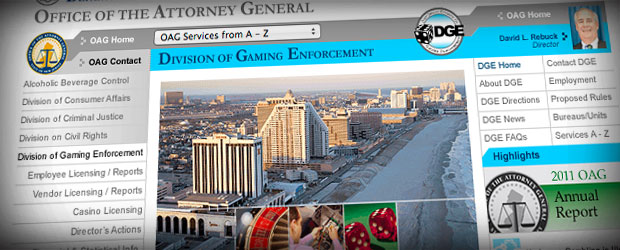 The online gaming affiliate industry was a thriving market in the United States before the UIGEA and Black Friday, and it has yet to gain much ground at all since the regulation of online gaming in New Jersey.
The online gaming affiliate industry was a thriving market in the United States before the UIGEA and Black Friday, and it has yet to gain much ground at all since the regulation of online gaming in New Jersey.
The primary reason is that affiliate marketing had yet to be thoroughly addressed by the New Jersey Division of Gaming Enforcement. Affiliates had been awaiting further instruction for months before an official document was released on June 9, 2014.
Licensing of Internet Marketing Companies Overview
The Director’s Advisory Bulletin was issued from the State of New Jersey and signed by DGE Director David Rebuck. It aimed to address the licensing of Internet marketing companies, better known in the industry as affiliates.
Two licenses are available for the entities – vendor registration or ancillary casino service industry enterprises. Compensation dictates the type of license required.
For instance, if affiliates are paid a flat fee for directing traffic to an online gaming site, they require a vendor license. An ancillary license is for companies who are paid based on player activity on those sites.
Vendors
The vendor registration license is for companies paid a certain fee when a user clicks on a banner or link for a New Jersey gaming site, based on how many people view a particular advertisement, or for an official partnership.
This type of license also applies to affiliates taking a flat fee for sign-ups, deposits, site downloads, or a particular number of bets or amount wagered.
Ancillaries
Affiliates must request an ancillary casino service industry enterprises (CSIE) license if pay is dependent upon gaming action. For instance, if an affiliate is paid a percentage of every deposit or a fee based on the amount of money a player wins or loses on the Internet gaming site, the ancillary license is required.
Revenue share revenue is also a determinant for an ancillary license, meaning the affiliate is paid a percentage of the net gaming for a user.
Sub-Affiliates
The document from the DGE goes on to discuss sub-affiliates, which are entities that are paid by the primary affiliate for referring players to a particular online gaming company. The bases for sub-affiliate licenses are the same as indicated above for vendors versus ancillaries.
Sub-affiliates must submit their contracts with primary affiliates to the DGE for the proper license. Should a sub-affiliate fail to obtain the proper license and file the necessary paperwork, the DGE can take regulatory action against that company as well as the master affiliate. Licenses could be revoked for failing to comply with all of the requirements.
Allowances
The DGE also details some of the allowances for affiliates in New Jersey. One of those is the ability to use a “refer a friend” application for which an affiliate takes a flat fee. Should an affiliate receive less than $2,500 per calendar year for this service, no license is required for that operation.
Affiliates are also allowed to switch compensation models as long as they remain in the same licensing class. While those changes require the DGE’s approval, they may be implemented without preapproval.
Requirements
All affiliates, no matter the license held, must submit a monthly report for the DGE’s Service Industry Licensing Bureau and Intake Unit. The documents must include details of all monies changing hands for any type of activities. License holders and platform providers must comply.
Lastly, all affiliate activity must take place in and be conducted with customers in the state of New Jersey. Any violations can result in the revocation of a license or other regulatory action deemed appropriate. The exact rules are given to the affiliate upon the completion of the licensing process.
